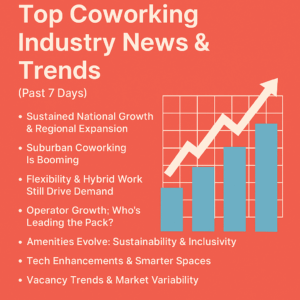- AI avatars offer HR a safe way to rehearse tough conversations like feedback, conflict, and layoffs.
- Simulated dialogues help build real-world empathy, adaptability, and communication fluency.
- These tools provide on-demand, judgment-free training for emotionally complex workplace scenarios.
For HR professionals, few responsibilities are more demanding than managing emotionally charged conversations.
Whether it’s delivering performance feedback, addressing interpersonal tensions, or handling layoffs, these moments require precision, empathy, and a strong command of communication. And yet, these are the very interactions where preparation is often lacking.
Now, artificial intelligence is offering a more sophisticated way to build fluency in these scenarios. At a recent debut event tech firm CGS introduced Cicero, a training tool that uses AI-generated avatars to simulate complex workplace dialogues. Initially designed to support sales training, the platform is drawing attention for its broader potential, particularly in the realm of HR.
A Controlled Environment for Uncomfortable Conversations
These kinds of training tools can provide a structured environment where users can rehearse challenging interactions without the social pressure of involving peers or managers. The experience is fully interactive: users engage with AI avatars that respond in real time, ask follow-up questions, and assess the participant’s communication style and accuracy. These platforms can even assign performance scores, creating a tangible feedback loop.
While its sales applications are clear (practicing how to pitch a product or respond to objections) the tool’s utility for HR goes deeper. Teams can create scenarios that mirror emotionally sensitive conversations, such as delivering difficult news, navigating performance issues, or mediating conflict.
Rehearsing Empathy, Not Just Execution
HR leaders are often expected to bring humanity to organizational processes. But empathy is not an inherent skill, as it requires experience, awareness, and refinement. Traditional training programs rarely provide sufficient room to develop these competencies, especially in high-pressure roles. AI-generated avatar workplace simulations can address this by allowing users to experiment, reflect, and recalibrate without real-world consequences.
The avatars aren’t perfect replicas of human behavior, and they’re not meant to be. What they offer is consistency, availability, and the ability to simulate a range of personalities and responses. In practice, that means HR professionals can train on everything from routine check-ins to emotionally complex discussions—again and again.
From Theoretical to Tactical
This new generation of learning tools replaces passive instruction with immersive, responsive practice. Repetition and realism are central; users aren’t simply memorizing talking points, because they’re developing the ability to read emotional cues, adjust their tone, and navigate unpredictable responses.
Rather than relying on static scenarios, these platforms invite users to engage in dynamic, unscripted exchanges. The result is training that mirrors the complexity of real-life conversations, with enough structure to allow reflection and recalibration.
A growing number of companies are exploring this model, using AI-driven simulations to help professionals build confidence and composure in high-pressure dialogues. Though the design philosophies vary, the shared objective is clear: make communication practice more meaningful, measurable, and accessible.
HR as a Strategic Communicator
As organizational demands on HR become more layered, communication is emerging as one of its defining responsibilities. Leaders must now traverse interpersonal dynamics with care, often under scrutiny and against a backdrop of legal, ethical, and cultural complexity. AI-powered tools can give HR teams a training partner that doesn’t tire, judge, or forget.
What makes this approach especially compelling is its accessibility. There’s no need to convene a group or find time on a senior leader’s calendar. The platform is on-demand, customizable, and multilingual, making it a viable option for global teams facing a variety of people challenges.
Practice Before It Matters Most
For most professionals, real learning happens through doing. But when the stakes are high, the cost of getting it wrong can be significant. Cicero and similar tools offer something rare in corporate training: a safe place to rehearse the hardest parts of the job. For HR teams, that means being better prepared not just to manage people, but to support them with clarity, confidence, and care.
The post The End of Awkward Role-Plays? AI Avatars Take On Conflict Resolution Training For HR Teams appeared first on Allwork.Space.




